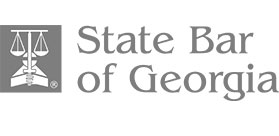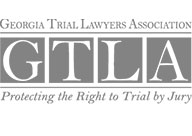A head injury does more than cause physical pain. It can quietly rewrite your personality, your memories, and your future. When a traumatic brain injury (TBI) is caused by someone else’s negligence in Georgia, you have the right to seek compensation.
But how do you do that while you’re still trying to heal?
That’s where we come in. A Milton traumatic brain injury lawyer’s purpose is to manage the legal process for you. At North Atlanta Injury Law, we understand that your energy belongs with your recovery. Our job is to build a thorough and persuasive claim that reflects the full scope of your injury, allowing you to focus on what truly matters.
If you or a family member is grappling with the consequences of a brain injury, call us. We offer a straightforward conversation about your situation and your options. Reach out to us at (770) 988-4000.
Milton Traumatic Brain Injury Guide
- Our Role is to Clear the Path for Your Recovery
- What Does a Traumatic Brain Injury Really Look Like?
- Building a Case: How Do You Prove a Brain Injury?
- What Compensation is Available for a TBI in Georgia?
- Where Do Brain Injuries Happen in and Around Milton, GA?
- Why You Shouldn’t Handle the Insurance Company Alone
- Frequently Asked Questions for a Milton Traumatic Brain Injury Lawyer
- Let Us Handle the Legal Details So You Can Focus on Healing
Our Role is to Clear the Path for Your Recovery
When you are facing the uncertainty that follows a serious injury, you need a law firm that provides both clear-eyed legal guidance and genuine support. Our practice is dedicated to helping people harmed by the carelessness of others. We understand the medical and financial pressures you are under, and our goal is to lift the legal weight from your shoulders.
Here is what you should expect when you work with our team:
- A Direct and Personal Approach: You will work directly with our attorneys. We take the time to listen, to understand how the injury has truly affected your life, and to keep you informed at every stage.
- No Upfront Costs: We handle traumatic brain injury cases on a contingency fee basis. Simply put, you pay no fees unless and until we recover compensation for you.
- A Focus on Your Well-Being: We manage the paperwork, deadlines, and all communications with insurance companies. This frees you to concentrate on your medical treatment and rehabilitation without added stress.
- Dedicated Experience: Our team has spent years handling demanding personal injury claims. We are prepared to build a strong case aimed at pursuing the maximum compensation available under the law.
We are ready to put our experience to work for you and your family.
What Does a Traumatic Brain Injury Really Look Like?
A traumatic brain injury occurs when an external force disrupts the brain’s normal function. These injuries fall on a spectrum, from seemingly mild concussions to severe injuries that cause permanent cognitive and physical impairments. One of the hardest parts of a TBI is that the full extent of the damage is not always obvious right away. Symptoms like memory loss, personality changes, and chronic headaches may flare up weeks or even months later.
Mild TBI (Concussion)
Even a “mild” TBI like a concussion is a serious medical event. A person might not lose consciousness at all but may experience dizziness, confusion, blurred vision, and nausea. While most people recover, some develop post-concussion syndrome, where symptoms persist for months or longer, interfering with daily life and work.
Moderate to Severe TBI
More serious TBIs result from a violent blow or jolt to the head or body. The damage might involve bruising of the brain tissue, bleeding, or tearing of nerve fibers. The consequences may include:
- Cognitive Deficits: Difficulty with memory, attention, problem-solving, and processing information.
- Physical Impairments: Loss of coordination, weakness in the limbs, seizures, and persistent headaches.
- Emotional and Behavioral Changes: Irritability, depression, anxiety, and sudden mood swings.
These changes rewrite every aspect of a person’s life, affecting their ability to work, maintain relationships, and simply enjoy their days.
Common Causes of Traumatic Brain Injuries in Georgia
TBIs frequently result from preventable incidents caused by another’s negligence. We handle cases that arise from:
- Motor Vehicle Accidents: Collisions involving cars, trucks, and motorcycles are a leading cause of TBIs. The violent forces in a crash can cause the brain to impact the inside of the skull.
- Falls: Slip and fall incidents are another primary cause of TBIs, especially among older adults and on unsafe properties.
- Workplace Accidents: Events on construction sites or other job sites, such as being struck by an object, can lead to serious head injuries.
- Physical Violence: Assaults also commonly result in devastating traumatic brain injuries.
Building a Case: How Do You Prove a Brain Injury?
The Role of Medical and Psychological Experts
Objective evidence is the foundation of a strong TBI claim. We work with a network of trusted professionals to document how the injury has affected your brain function and your life.
- Neurologists and Imaging Specialists: These medical doctors diagnose and treat injuries of the nervous system. While standard MRIs and CT scans might appear normal after a mild TBI, advanced imaging techniques sometimes reveal subtle changes in the brain’s structure.
- Neuropsychologists: These specialists conduct comprehensive testing to measure cognitive functions like memory, attention, and processing speed. A neuropsychological evaluation provides objective data that demonstrates changes in brain function from before the accident.
- Vocational Experts: These professionals assess how the TBI has impacted your ability to perform your job. They analyze your skills, education, and the cognitive demands of your profession to determine if you can return to your previous work or if your earning capacity has been permanently reduced.
What is a Life Care Plan?
For those with serious, long-term injuries, a key part of the case is planning for the future. A life care planner is an expert, perhaps a physician or nurse, who creates a detailed, evidence-based report outlining all of your anticipated future medical needs. This document projects the costs of everything from medications and future surgeries to in-home care, therapies, and assistive devices.
What Compensation is Available for a TBI in Georgia?
The purpose of a personal injury claim is to secure financial resources to cover the full range of losses the injury has caused. A TBI could require extensive medical care, long-term rehabilitation, and may diminish your ability to work and enjoy life. The compensation we pursue is designed to address these burdens.
In Georgia, these damages are generally broken into two main categories:
- Economic Damages: These are the tangible, calculable financial losses you have suffered. This includes:
- Medical Expenses: All costs for hospitalization, surgeries, physical therapy, medication, and any future medical care detailed in a life care plan.
- Lost Wages: The income you have lost while unable to work during your recovery.
- Diminished Earning Capacity: If the TBI prevents you from returning to your previous job or earning the same income, you may be compensated for this future loss of earnings.
- Non-Economic Damages: These damages are meant to compensate you for the personal, non-financial losses that have no exact price tag. This includes:
- Pain and Suffering: For the physical pain and emotional distress the injury and its consequences have caused.
- Reduced Enjoyment of Life: For the loss of your ability to participate in hobbies, activities, and relationships you once enjoyed.
What if the Injury Affects Your Marriage?
A severe TBI can change a person’s personality, mood, and abilities, which deeply impacts their closest relationships. Under Georgia law, the uninjured spouse may have a separate claim for loss of consortium. This legal concept acknowledges the loss of companionship, affection, and services that the spouse has suffered because of the injury to their partner. This claim must be filed within four years of the injury.
How Your Own Actions Might Affect Your Claim
Georgia uses a modified comparative fault rule. This means you can still recover damages even if you were partly responsible for the accident, as long as a jury finds you were less than 50% at fault. However, your compensation award will be reduced by your percentage of fault. If you are found 50% or more at fault, you are barred from recovering any damages at all.
The Two-Year Deadline to File a Claim in Georgia
It’s important to know that Georgia law sets a strict time limit for filing a personal injury lawsuit. In most cases, you have two years from the date of the injury to file a claim. This is known as the statute of limitations, and if you miss this deadline, you will almost certainly lose your right to seek compensation forever. This deadline makes it best to speak with an attorney early to ensure your rights are protected.
Where Do Brain Injuries Happen in and Around Milton, GA?
The Atlanta metro area, including Fulton County, has some of the most congested roads in the state.
Though specific data for every intersection in Milton is not always compiled publicly, traffic analysis and local reports point to several areas of concern for drivers in North Fulton.
We see accidents happen most commonly at:
- High-Speed Intersections: Roads where highways and local streets meet can be particularly dangerous. The intersection of Old Milton Parkway and North Point Parkway in nearby Alpharetta is known for collisions due to a mix of commuter and shopping traffic.
- Major Arterial Roads: State Route 9 (Alpharetta Highway) is a major thoroughfare. The intersection at Hembree Road was previously identified as one of the most dangerous in Fulton County. Similarly, the intersection of Bethany Bend and Highway 9 was one of Milton’s highest accident locations before recent safety improvements were made.
- Complex Interchanges: Areas with on-ramps and off-ramps, like those connecting local parkways to major highways, see frequent accidents due to merging traffic and varying speeds.
Why You Shouldn’t Handle the Insurance Company Alone
After an accident, you will likely have to deal with an insurance company. It’s helpful to understand their position. Insurance companies are businesses with a responsibility to be profitable, which means they must balance paying valid claims with protecting their financial interests.
Here’s what this means for you:
- Quick Settlement Offers: An insurer might make an offer before the true extent of your brain injury is known. As mentioned, TBI symptoms can take time to fully develop. Accepting an early offer may leave you without the resources to cover future medical needs.
- Requests for Recorded Statements: You are not obligated to provide a recorded statement to the other party’s insurer. Their goal is to gather facts, and they may ask questions designed to find information that could be used to argue you were partially at fault, which could reduce your compensation under Georgia’s fault rules.
- A Tedious Process: The claims process involves a great deal of paperwork and strict deadlines. It’s easy to get frustrated while recovering from a serious injury. This frustration sometimes leads people to accept a lower offer just to be done with it.
Our role is to manage all communications with the insurance company on your behalf. We will build a comprehensive claim that documents all of your damages and work to ensure that any settlement offer fully accounts for the long-term costs of your injury.
Frequently Asked Questions for a Milton Traumatic Brain Injury Lawyer
What if I didn’t lose consciousness? Can I still have a TBI?
Yes. A person with a mild TBI, such as a concussion, may not lose consciousness at all. Any blow to the head that disrupts normal brain function can be classified as a TBI, and even injuries that seem minor at first can have lasting consequences.
How long will my TBI case take?
There is no set timeline. A case could resolve in a few months if the evidence is clear and the insurance company makes a fair offer. However, if the injuries are severe or liability is disputed, you may need to file a lawsuit. Litigation can take longer to complete but can result in more compensation.
The at-fault driver was uninsured. Do I have any options?
Yes. You may be able to file a claim under the uninsured/underinsured motorist (UM/UIM) coverage of your own auto insurance policy. This is optional coverage in Georgia, but if you have it, it can be used to pay for your damages up to your policy limits. We’ll review your policy to determine your options.
My personality has changed since the accident. Is that part of the claim?
Absolutely. Personality changes, irritability, depression, and other emotional shifts are well-documented consequences of a TBI. These are considered part of your non-economic damages (pain and suffering) and are a significant component of your claim. Documenting these changes through journals and testimony from family and friends is an important part of showing the injury’s full impact.
My loved one has a severe TBI and cannot make decisions. Can I act on their behalf?
Yes, in many cases, a close family member can pursue a claim on behalf of an incapacitated loved one. This may require a legal process to establish guardianship, which allows you to make legal and financial decisions for them.
Let Us Handle the Legal Details So You Can Focus on Healing
While you focus on putting the pieces back together, you should not have to carry the additional weight of a demanding legal claim. Our team at North Atlanta Injury Law is here to take on that burden for you. Our experienced Milton personal injury lawyer has the skill and dedication to handle these sensitive cases with the care they require.
Let us be your guide. For a free and confidential consultation to discuss your case, call us today at (770)988-4000.
North Atlanta Injury Law PC – Milton Office
Address: 12610 Crabapple Road Suite 201 Milton, GA 30004
Contact No: (770) 988-4000








